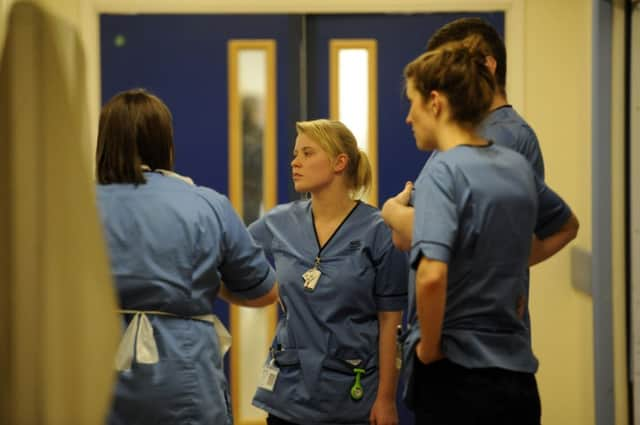Lyndsay Buckland: A remedy for NHS ills?


Or fund expensive cancer drugs deemed too pricey to pay for. Or help fund the building of new hospitals perhaps.
In Scotland, £9m is the cost of holding the Penrose Inquiry into how patents were infected with hepatitis C and HIV from contaminated blood products in the 1970s and 1980s. And even this figure is out-of-date, released in May 2012. The final cost won’t be revealed until the inquiry reports – and when that will be is also anyone’s guess.
Advertisement
Hide AdAdvertisement
Hide AdBoth the Penrose Inquiry and another public inquiry into the deadly outbreak of Clostridium difficile at the Vale of Leven Hospital have been subject to numerous delays.
Penrose had finally been due to publish next month, more than six years after the Scottish Government pledged to hold an investigation. But after further delays were announced in January, a new publication date has yet to be set.
The Vale of Leven Inquiry had been originally due to report in May 2011, but following setbacks was also scheduled for next month – until last week at least when a new delay was announced pushing publication to a time unknown. Some of the delay has been because of illness and bereavement suffered by the chairmen of the inquiries, which is understandable.
As for the other delays, it is impossible to tell how much is down to a complex legal process or unnecessary bureaucracy getting in the way of those affected receiving answers, or for the rest of us getting reassurances that measures are being taken to prevent the same things happening again.
Public inquiries are funded by the Scottish Government and while the inquiry team are expected to manage costs carefully, it is unclear to what extent they are given a budget. When I asked the government yesterday about the cost of the Vale of Leven inquiry, which has never been revealed, it said this would not be published until the inquiry reports. Whenever that might be.
As well as legal costs and expenses, both inquiries have employed PR agencies to handle media inquiries. Currently, this mainly involves sending out statements each time there is a new delay.
Holding public inquiries so long after the events that prompted them raises questions about how useful their findings will be as you hope that any urgent changes to practice will already have been made.
Let’s just hope they haven’t also been given a blank cheque and told to fill in the noughts as they go along.